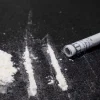Do You Need Alcohol and Drug Abuse Treatment Programs in Tennessee?
What do substance abuse and alcohol treatment programs involve? When your mental health is in jeopardy as a result of your drug and alcohol addiction, it’s time to create a list of rehab centers in Tennessee you’d potentially attend.
Finding a facility that provides mental health services in combination with addiction treatment services is vital. Our rehab centers in Tennessee deliver treatment for mental health disorders, along with crucial mental health services, to help you get to the root of your challenges.
Alcohol can be an especially challenging substance to overcome. It’s one of the worst forms of substance abuse in existence. If you’re having issues with your alcohol intake and need the help of alcohol rehab centers, Resurgence Tennessee can help.
Find out more about our alcohol addiction treatment center in the following article and get help now!
Rehab Centers In Tennessee for Alcohol Abuse

Keep in mind that the main objective is the “alcohol recovery journey.” While we’ll go over the specifics of day-to-day therapy, your ongoing recovery is always the bigger picture. That will include a day-by-day improvement over the course of your alcohol-free life.
Here’s an example of the journey:
Our Rehab Centers Intake
In a sense, your treatment starts before you actually receive therapy or mental health services. You will be given a questionnaire to evaluate your addiction and mental health as soon as you enter drug rehab centers. Or, based on the alcohol rehab center, you might have an interview with a physician.
The intake procedure is completed after you undergo a medical examination to document any prior issues you may have, physical or mental health-wise. All of these choices will aid in creating your treatment strategy. The best drug rehab centers always craft a personalized treatment plan. This is vital for substance abuse and alcohol recovery.
In order to select the most beneficial substance abuse and alcohol treatment, doctors must ascertain your mental, emotional, and physical conditions.
Get Alcohol Treatment Options in TN – Reach Out Now!
888-290-5254
Detox
Your inpatient alcohol therapy will likely begin with detox, which lasts for the majority of your first week. Why? Only when alcohol is free from your system can you begin substance abuse treatment. Additionally, because of your body’s long-term dependence on alcohol, the alcohol will go down fighting.
Your body experiences withdrawal symptoms during detox, which is the process by which it eliminates any alcohol that is still present in its system. These symptoms, which can frequently become unpleasant, can deter people from considering alcohol recovery or substance abuse treatment. It can even be fatal in some situations.
Due to how uncomfortable withdrawal symptoms can be, our inpatient substance abuse services offer 24/7 medical staffing.
Here are a few signs of alcohol withdrawal, both psychological and physical:
- Anxiety
- Mood changes
- Insomnia
- Nausea
- Shaking
- Sweating
- Fever
- Headaches
Just a short while after your last drink, withdrawal sets in (sometimes in just a few hours). It usually gets worse during the first three days but may begin to subside as you approach a week. The toughest phase of alcohol withdrawal stops after seven days. Depending (again) on your particular addiction history, mental symptoms may worsen during the remainder of your stay.
Seven days of sobriety may sound tough now. However, with the help of our drug rehab center staff, along with medication-assisted treatment, we can help you overcome this obstacle. Inpatient medical supervision is essential because of this. With the assistance of doctors who are familiar with your medical history, you can successfully complete detoxification and move on to the next stage of inpatient alcohol treatment.
Therapy
Just as detox ends, your inpatient rehab treatment sessions get started. They will take place under your doctor’s cautious guidance, just like detox. Your needs will determine your timetable, peer groups, one-on-one meetings, and counselors. Your body starts to overcome its alcohol dependence under medical supervision when you undergo detox. The same is true of therapy, only on a mental level.
Dual diagnosis treatment may be included during this portion of addiction treatment, along with other options.
Medication Assisted Treatment (MAT)

Historically, detoxing from a chemical addiction has been very difficult, whether it be to cigarettes, alcohol, opioids, or anything else. The idea of keeping an addict locked up until the seizures stop was the course of action when care was more primal. Detox caused the deaths of addicts, and that risk is still present.
In its simplest form, MAT is a collaboration between the client, their attending medical team, and their therapeutic team that enables the client to navigate detox with the greatest level of comfort, awareness, and success.
How Does It Work?
There are three main steps in MAT. The many procedures that guarantee success are listed under each step.
Evaluation
You will undergo a series of procedures after being admitted to your choice detox center to assist the medical and therapeutic professionals there in creating the finest personalized treatment plan for you. A physical examination and blood tests will be performed on you to identify any medical conditions that need to be watched or included in your unique treatment plan. There will probably also be a test for co-occurring mental health problems or disorders.
Your current support system will also be assessed; do family and friends support you? Do you have a sober place to live?
Your therapeutic and medical teams will consider all of this as they collaborate with you to create the most personalized treatment plan for your needs, one that will provide you with the highest chances of comfort and overall success during the detox process.
Stabilization
Simply defined, this is the stage at which medical professionals implement your evaluation’s findings and the ensuing treatment plan. This is the point at which you quit using drugs and start the detox process that will lead to sobriety. You might be given medicine during this period to assist you in controlling the withdrawal symptoms.
Among the drugs used to reduce the symptoms of detoxification are:
- Benzodiazepines
- Antidepressants
- Suboxone/Methadone
Preparation
At this point, your detox is either coming to an end or is complete, you are stabilizing on any therapeutic medications that will help you sustain sobriety, and the process of getting ready for your recovery journey has started. Your recovery journey won’t end when you leave the institution if you create good habits, coping mechanisms, a sponsor, daily routines in groups, and any subsequent rehab that may be required.
Compared to the past, detox has greatly advanced in recent years.
Effective Methods of Addiction Treatment

Addiction treatment consists of various treatment programs and therapies to educate you on the science of addiction, including relapse and triggers. Behaviors are examined in an effort to help you retrain your subconscious mind.
Cognitive Behavioral Therapy
This recovery tool comes in a variety of forms, and which one you get will depend on your history with alcoholism and the circumstances of your past. Interpersonal behavioral therapy and trauma-focused behavioral therapy are two instances of specialized treatment. These forms of therapy help you create new behavioral patterns, replacing negative with positive actions.
A significant portion of alcohol rehab counseling is based on cognitive behavioral therapy (CBT), including peer group settings, family counseling, and one-patient-one-counselor settings.
CBT in a group setting is helpful for your rehabilitation since you can speak with peers without judgment.
Continued Recovery Preparation
You are meant to be able to return to your life after completing all the therapy and counseling you receive in an inpatient alcohol recovery program. The goal of treatment is to reintegrate clients into society with the skills necessary to lead sober, clean lives. You’ll probably speak with your counselor and doctors toward the conclusion of your first month to decide on and prepare for your next steps.
This preparation for alcohol recovery is based on what you learn in counseling: all the factors that first encouraged you to drink could later trigger a relapse. Your therapy will include methods for advancing your alcohol recovery, including participation in the alcohol rehab center’s alumni program and continuous attendance at AA meetings (if one exists). When you sign up for the alumni network, you gain access to a ready-made support network, which you’ll need once you finish treatment and return to your normal life.
Alcohol Detox Hotline – Get Immediate Help!
888-290-5254
Top Alcohol Treatment Programs for Tennessee
At Resurgence Tennesse, we provide all of the options listed above and more. We even take a holistic approach to healing, giving you more modern avenues of recovery along with the 12 Steps when desired.
In the end, it’s all about finding what works best for you and continuing to build on these elements. For more information on how we can help you overcome your alcohol addiction, contact a member of our Admissions team today for a confidential discussion of options!





